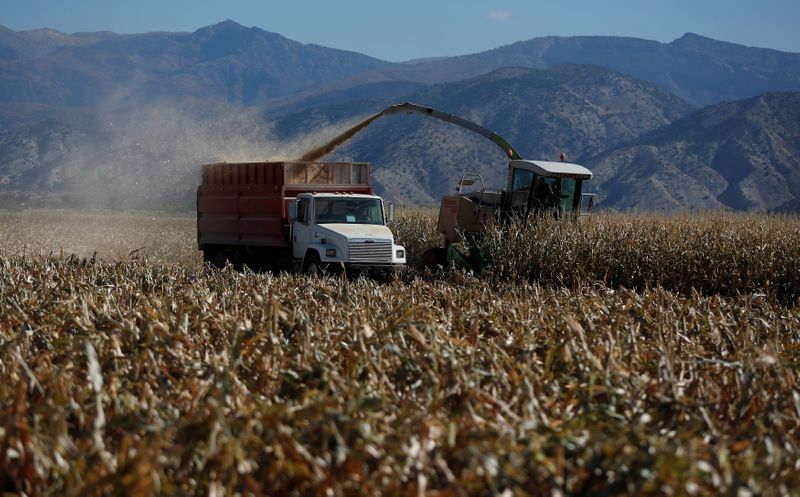By Jarrett Renshaw, Chris Prentice and Stephanie Kelly
WASHINGTON (Reuters) - A trade group representing some of America's biggest baked goods companies is urging the Biden administration to ratchet back its biofuel ambitions, arguing that using fuel made from crops could raise the cost of donuts, bread and other foods.
The complaints mark an unusual entrance by the food industry into the U.S. energy policy debate, and puts it in an unwitting alliance with Big Oil, which has for years opposed regulations requiring that fuels made from corn, soybeans and other crops be added to the nation's gasoline and diesel.
The American Bakers Association, which represents companies like the grocer Kroger (NYSE:KR), donut maker Krispy Kreme and Tastykake parent company Flower Foods, told Reuters it met with the Environmental Protection Agency (EPA) last week to urge reduced blending mandates, particularly for biodiesel.
The EPA administers the nation's biofuels laws.
The group has also met with lawmakers involved in the issue to press its case, according to its president Robb MacKie.
MacKie said the group held the meetings because its members are hearing from suppliers of soy and canola oil - staple ingredients in many foods - that they could run short of stocks by the end of the year as demand from the biofuels industry compounds already tight global markets.
"We are trying to ring the alarm without being alarmists," MacKie said.
Baked goods companies want the Biden administration to lower biodiesel blending mandates to 2019 levels or at least "hold the line" on any growth, he said.
It was unclear whether their demands would have any impact on EPA's decision-making.
The EPA is currently considering new biofuel volumes requirements for the coming year under the nation's biofuel law, the Renewable Fuel Standard (RFS), a process that has been delayed by the economic fallout from the coronavirus pandemic and by treacherous political considerations.
Nick Conger, an EPA spokesman, confirmed the agency met with the baker's trade group, but did not offer details.
"EPA always appreciates input from stakeholders, and we are taking their concerns into account along with those of the many other RFS stakeholders," Conger said.
Around 40% of soy oil consumed in the United States goes to producing fuel, with most of the rest going into food, according to U.S. government data.
BATTLE WIDENS
The RFS, adopted in 2005 to help farmers and reduce fuel dependence, has created a nearly 20 billion gallon per year market for the U.S. Farm Belt. But oil refiners say it has also created a costly regulatory burden that threatens to bankrupt smaller refining facilities.
Until now, the fight over the policy has been restricted mainly to those two constituencies.
Kurt Kovarik, Vice President of Federal Affairs for the National Biodiesel Board, said now is not the time to slow the progress of biodiesel, which he said is among the cleanest, low-carbon fuels available.
"America's agricultural sector is still emerging from years of disruptions due to trade wars and weather events. The COVID emergency continues to impact markets, including agriculture. Undercutting the Renewable Fuel Standard is not a solution," Kovarik said.
The average price of food in the United States climbed 2.4% in the 12 months ended June, rising from the previous 2.2% increase, according to the U.S. Labor Department's Bureau of Labor Statistics.
Domestic production of biodiesel is around 130,000 barrels per day, according to the U.S. Energy Information Administration.
